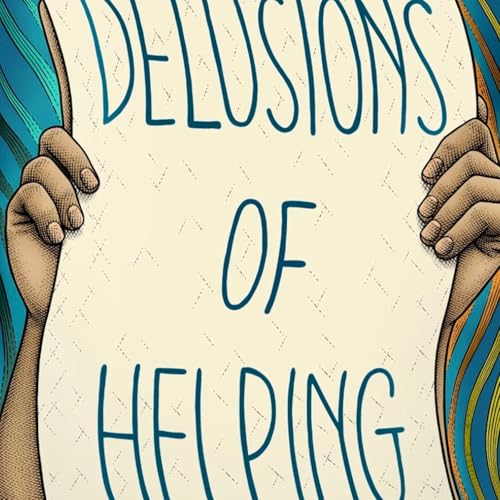
The Myth of Oversharing
Échec de l'ajout au panier.
Veuillez réessayer plus tard
Échec de l'ajout à la liste d'envies.
Veuillez réessayer plus tard
Échec de la suppression de la liste d’envies.
Veuillez réessayer plus tard
Échec du suivi du balado
Ne plus suivre le balado a échoué
-
Narrateur(s):
-
Auteur(s):
À propos de cet audio
- There’s no such thing as “too much” when it comes to lived experience — only the shame we attach to it.
- The White Lotus TV show example featuring Sam Rockwell's character delivering a deeply personal monologue about his sexual journey is presented as an illustration of authentic sharing that society often criticizes.
- Google search results about oversharing reveal widespread negative perceptions, with questions framing it as a symptom of mental illness, manipulation, or a red flag in relationships.
- Markl argues that people generally "under-share" important emotional journeys and authentic experiences, which prevents deeper human connections.
- Social media advice to "guard what you tell people" and "don't tell them your dreams" creates superficial relationships that fail to maximize human potential.
- The cultural tendency to dismiss or minimize others' trauma by saying "everyone has trauma" dishonors individual experiences and prevents genuine empathy.
- Professional environments often discourage authentic sharing of opinions or criticisms, forcing employees to remain silent even when they foresee problems with business decisions.
- Meaningful relationships, according to Markl, are those where people can open up deeply and create shared experiences through vulnerability.
- The practice of hiding personal shortcomings from others leads to self-suppression, creating internal tension that could be released through honest sharing.
- Markl advocates for encouraging people to share more about their real-life situations rather than labeling it as inappropriate "trauma dumping."
- The goal of human interactions should be reaching a depth where trauma can be shared alongside positive discussions about personal growth and transcendence.
- Life inevitably includes both positive and negative experiences, and repressing past traumas prevents the elevation of mindset regardless of circumstances.
- Cultural norms around communication should focus on meaningful life experiences rather than superficial elements like food, dance, and clothing.
- Markl concludes that sharing deep, real experiences and feelings allows for mutual learning and better advice-giving between people.
Pas encore de commentaire


